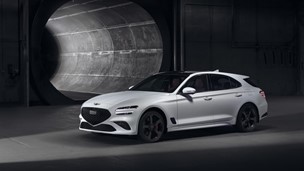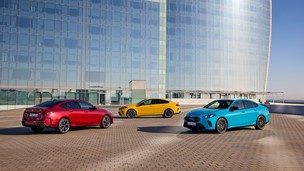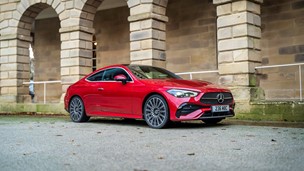By a margin which is too small to be worth bothering about, this is the second fastest production car that Skoda has built to date. The Octavia vRS hatchback is slightly quicker, but if its admittedly impressive luggage capacity isn't quite enough for you, the more recently launched estate provides even more.
This is a significant point because even in this form the Octavia feels more like family transport than a true performance car. It looks that way, too - like the hatch, the vRS estate has been dolled up to some extent, and is quite an attractive machine as a result, but it doesn't appear as aggressive as the specification would suggest it might.
It's doesn't hang about, though. The amazing mid-range performance of the turbo diesel Fabia vRS makes that car seem even quicker on country roads, but on paper the Octavias have the advantage. The familiar 1.8-litre turbo petrol unit found in so many Volkswagen Group products is supplied here in 180bhp form, which is by no means the highest rating (the same unit is tweaked to 225bhp in other applications) but is still enough to provide a top speed of 143mph and a 0-62mph time of eight seconds. For a car of this size, that's a lot of performance for the price.
I have something of a soft spot for Skodas in general, but I can't ignore two problems which the vRS estate has inherited from other Czech cars, both of which became very evident within five minutes of my climbing aboard the test car for the first time.
In chronological order, number one is something that is common to every Octavia estate I have ever driven that was not fitted with a sunroof: at all speeds from about 20mph upwards there is a boom which, while it does not dominate the sound effects within the cabin, is nevertheless constantly apparent. I was aware of this at the launch event of the original estate, long before the vRS models were announced, and it seems to be produced by the very long roof which is so flexible that you can press the centre of it down by a couple of inches with light pressure from one finger.
As any acoustics expert will tell you, fitting a large flexible component to a car is just asking for trouble. The significance of the cars fitted with sunroofs is that they have a far smaller resonating area, which is why they are not nearly as noisy. The test car had no sunroof and was therefore that bit more uncomfortable to live with than might otherwise have been the case.
The second inherited problem can also be found on each of the three Skodas to carry the vRS badge. In every case, the front suspension - which carries most of the weight of the vehicle - is seriously underdamped, making the car needlessly clumsy over bumps and round corners.
I don't believe this has anything to do with Skoda attempting to achieve a good ride/handling balance (or if it is there has been a serious miscalculation), because the same effect also spoils the ride quality and forces the driver to concentrate on keeping the car on a stable line through a corner when he or she might otherwise be devoting more attention to road and traffic conditions.
As with the other vRS models, this is a great pity, because it make the Octavia far less effective than it could be. It is, after all, an attractive car: good-looking, relatively cheap, roomy in most areas (except the rear seats, though that's an issue with every car based on the MkIV VW Golf platform) and enjoyably quick. If only the suspension and the cabin noise could be attended to - neither of them particularly difficult tasks, you would think - the Octavia vRS estate could easily become a car I would be very happy to own.
Second opinion: Yes, I do seem to have read some of the above before. The suspension business is curious, given that Skoda modified the springs, dampers and anti-roll bars when it gave the Octavia extra power. As you might expect, given the low-profile tyres, the ride is pretty uncompromising at town traffic speeds on less than top-class surfaces. The vRS estate certainly has plenty of sports goodies in the cabin, from the seats with their leather/mesh upholstery via the leather trim on the steering wheel and around the gearlever, to the stainless steel pedals. Outside, there are modified bumpers, businesslike alloys and a neat rear spoiler, and the brake calipers peep out green in the familiar vRS way. I think the Octavia in this form looks pretty good, and it's worth bearing in mind that the styling was a Dirk van Braeckel job, before he went to Bentley. What with one thing and another, though, the 4x4 (see road test) remains my favourite estate model in the Octavia catalogue. Ross Finlay.




